Moving to Malta in 2022 part 1 – that will be the topic of today’s article.
Before introducing this article, if you are interested in our core services which are expat financial, insurance and mortgages, you can contact me here.
The best time to consider your financial situation is when you are moving to a new country.
Introduction
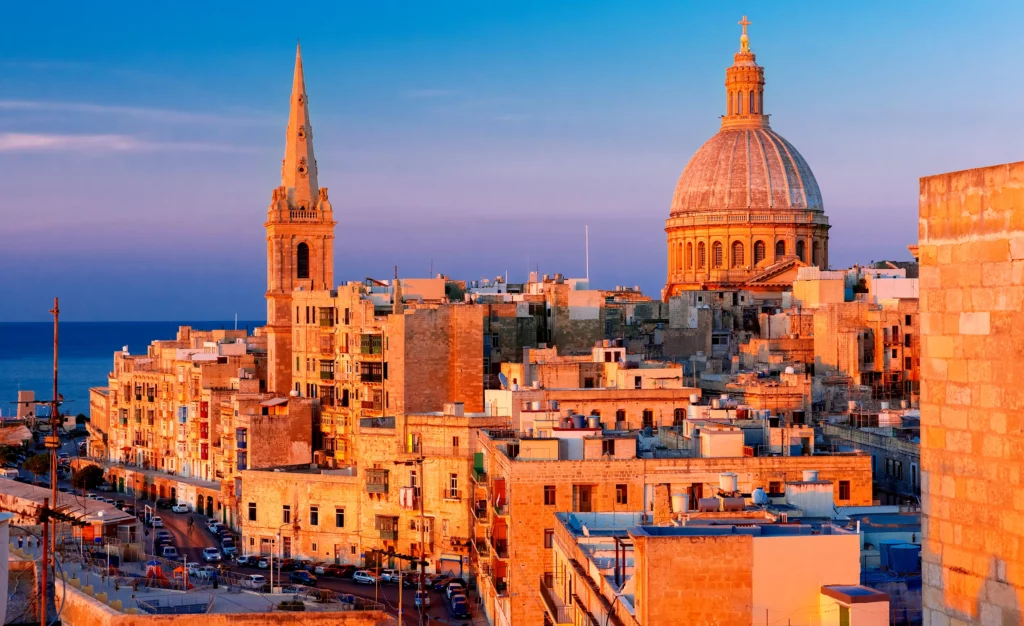
In the next few years, Malta will be transitioning from a nation largely dependent on foreign industry to becoming more self-sufficient. This transition will be no small part of many new immigrants who wish to live and work in Malta.
Part of this transition also includes changing the culture of employment across Europe. Historically, working conditions have been poor in Malta, and this has caused thousands of Maltese citizens to flee the island nation. This time though, it is different: Maltese and foreigners will be afforded nearly identical benefits and rights as other employees under the law.
The other big change in Europe is a move from part-time to full-time work. This has been happening slowly across the continent, but Malta will be enforcing nearly immediately. All workers in Malta are to be allowed at least 35 hours per week, with any additional hours being negotiable between the employer and employee.
Malta’s move towards a more European employment style will help increase both the native population and incoming immigrants, who are likely to have a much healthier work-life balance. This shift is already being felt among Malta’s immigrant community.
Today, we have compiled this article to explain why moving to Malta in 2022. That being said, you’ll understand some of the interesting facts about this country. With the pros and cons and the types of visas available for expat, we’re sure you’ll understand what moving to Malta seems like. Continue reading to know better!
Interesting Facts about Moving To Malta as an Expat
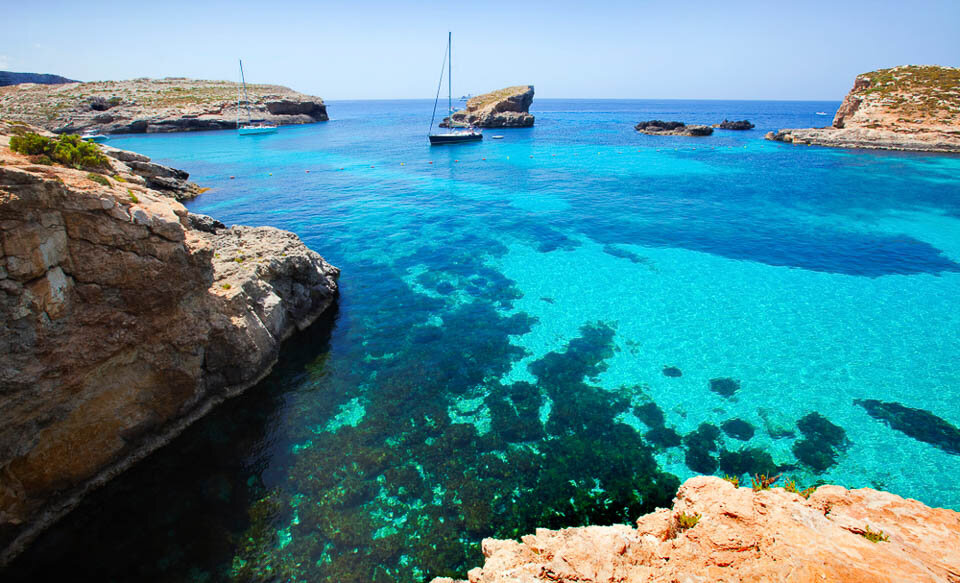
Moving abroad is a dream for many people. The ability to explore a new culture and start a new life in a foreign country is one of the most exciting things someone can do. One such place you might want to think about moving to is Malta. There are several reasons why it may be an excellent idea, especially if you enjoy living near the beach.
Moving to Malta
Moving to a new country is hard and daunting, especially when it’s in a place like Europe, which has a rich cultural history and diverse population. However, if you’re moving to Malta — the tiny island nation at the center of the Mediterranean Sea — your life will be that much easier because English is their official language.
Maltese Lifestyle
Although Malta is a small country, it has a long multicultural history. This means that their food isn’t the standard pizza and pasta you might expect from other Italian-influenced countries in Europe. In fact, many major cities have large populations of Arab people who brought with them their own unique cuisine.
Work Opportunities
If you’re planning on moving to Malta, you might wonder if any jobs will be available that suit your skillset and qualifications. Luckily the unemployment rate is relatively low, but even if it weren’t, there are lots of opportunities for work in hospitality management! Many of the hotels throughout the country are looking for managers from all over Europe.
Balancing a Career and a Personal Life
One of the best parts about moving to Malta is that it’s a great place to raise a family! The country has one of the lowest crime rates in Europe, which makes a living there feel quite safe. Furthermore, the weather isn’t too hot, so you don’t have to bake your kids in the sun during the long summer months.
The Language Barrier
Because Malta has close ties to Great Britain, there are quite a few British expats that live within their borders. However, not everyone is lucky enough to speak English fluently. If you’re planning on living in Malta, you should probably brush up on your Italian or Maltese.
Sporty People
Maltese culture really values physical activity. In fact, many of the people you meet are likely to be into running or sports in general! If you’re looking for an active community to move to Malta, this will definitely help. The island itself is quite small, so people generally commute by bike or car, so being healthy makes sense.
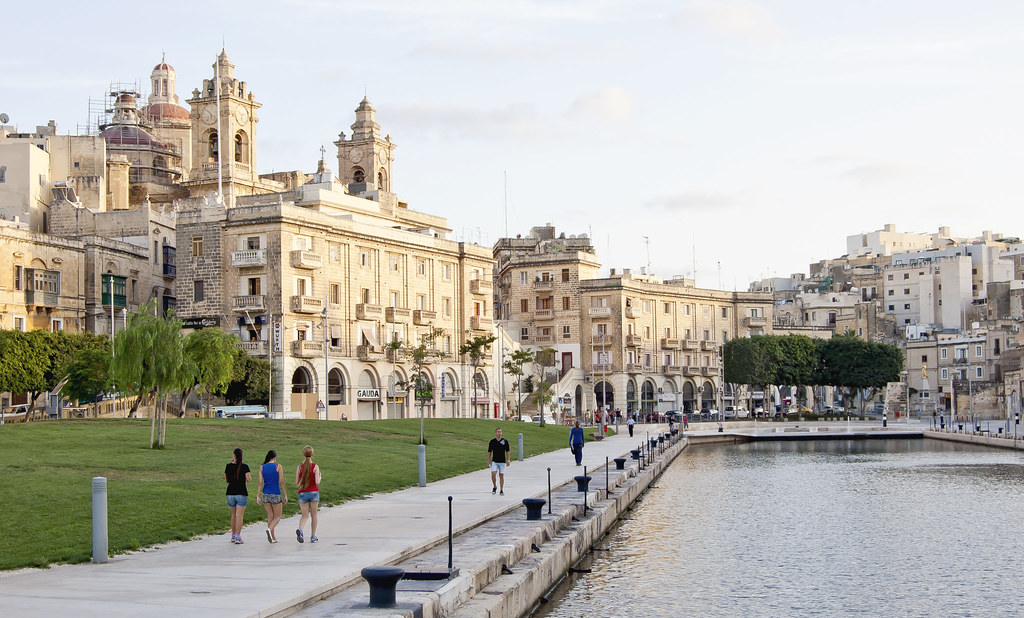
Malta is a Great Place to Relax
Lastly, Malta is a great place to move to because there isn’t a lot of stress in this country! In fact, many people get so relaxed that they forget their deadlines and appointments. Although you’ll want to hold yourself accountable for work purposes, it’s nice knowing that if you want to lounge around for a day, no one will scold you.
Currency
Maltese currency is the Lira, which is divided into 100 cents. English coins have the same value as in any other country, but Maltese coins include one, two, and five Liras, with a symbol representing the denomination on each coin.
Climate & Seasonal Clothing
Maltese climate is the Mediterranean, with hot and dry summers and mild winters. In the summertime, when the heat peaks, it is common for Maltese people to go to the beach in the afternoon or enjoy a picnic lunch in nearby parks. Most people living in Malta wear lightweight clothing during the summer months.
Architecture
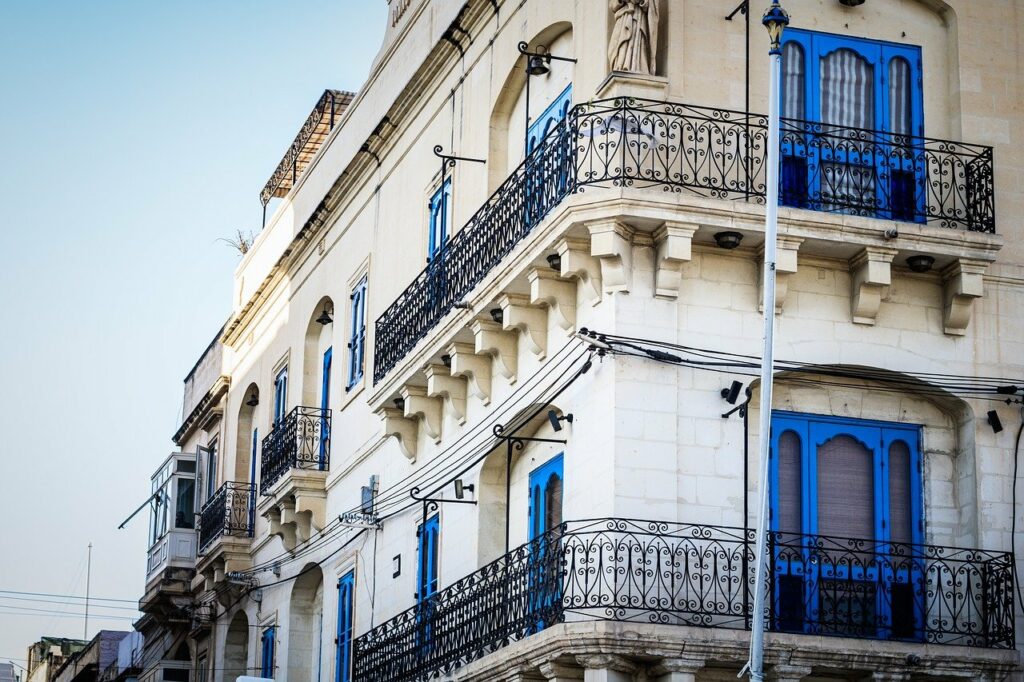
Malta is part of an archipelago between Sicily and the North African Coast. The architecture in Malta reflects this unique location with a rich history that dates back to Phoenician, Carthaginian, Roman, Byzantine, Arab, Norman/Crusader, and Italian influences.
Food & Beverages
Maltese cuisine is a blend of the cuisines from the different cultures that inhabited this small island. Local Maltese dishes include pastizzi, a traditional ricotta cheese pastry; skordali, a garlic sauce served with bread; and more. The country has also absorbed elements of British cuisine with fish and chips, meat-based soups and stews, etc.
Types of Visas Available For Expats in Malta
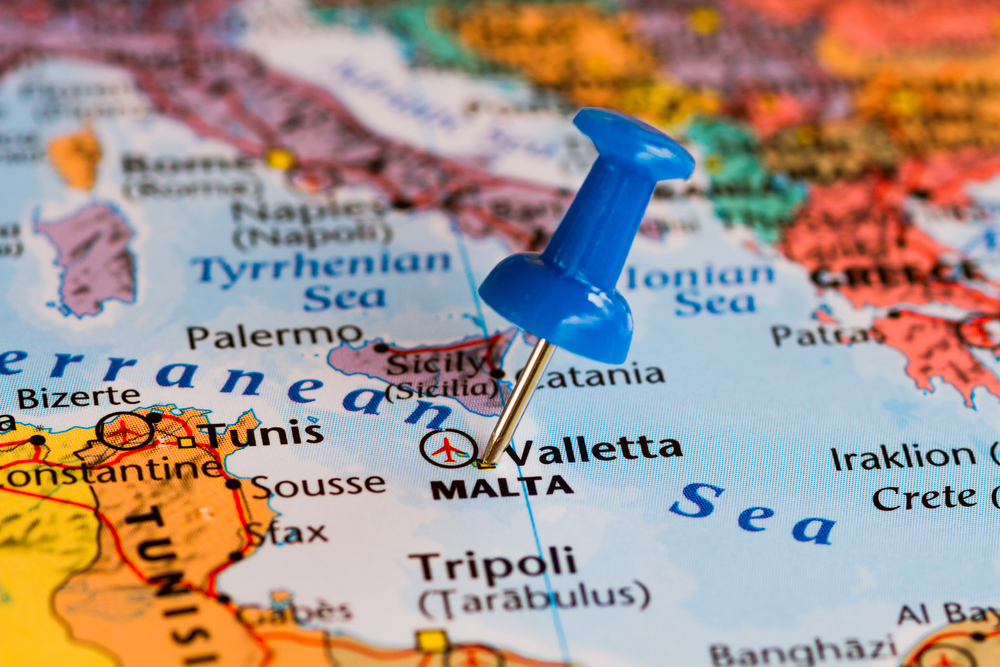
In order to enter Malta, a foreigner needs to apply for a visa. There are several types of visas available for those who wish to travel or live in the Maltese islands.
Visa Requirements
There is a minimum age requirement for some visa categories. Applicants below 18 years old cannot apply for a residence permit if on their own and must be accompanied by a person who is 18 years old and above. Applicants below 21 years old must also be accompanied by their parents if they are applying for a residence permit as a parent’s dependent.
Visas
The most common types of visas available to those interested in traveling or living in Malta are:
Temporary Residence Permit
This type of visa is for those wishing to live in the Maltese islands for a period that exceeds six months up to five years. There are several types of temporary residence permits available depending on the purpose of the visit, e.g., employment, self-employment, family member dependent.
Employment Permit
Applicants with an employment permit can work for their sponsor in the Maltese islands. Sponsorship is given by an employer who has obtained prior approval from the Department of Citizenship and Expatriate Affairs (DCEA). Applicants with an employment visa may not be paid for any work done without a Work Permit.
Self-Employment Permit
This visa type is meant for those who want to set up and run a business in the Maltese islands. Applicants with this type of visa must submit their application through an approved self-employed business person that has already established themselves in the Maltese islands.
Retiree Visa types
This type of visa is designed for individuals that wish to retire in the Maltese islands. Applicants for this type of visa must meet certain health and financial requirements. More so, applicants must also prove that they have a guaranteed and stable income which is sufficient to cover their living expenses in Malta.
Student Visa
Applicants with this type of visa are allowed to come over to study at any educational institution or level (pre-university, undergraduate, postgraduate) approved by the Ministry of Education and Employment. In addition, students are allowed to do internships or clinical practice in hospitals.
Short Stay Visas
Applicants with a short stay visa can enter Malta for a very short period, e.g., a day, a week, or any specific duration not exceeding three months per six-month period. These types of visas are meant for those who come to Malta on a mission that will not exceed the duration of the said visa.
Transit visa
Applicants with this type of visa may enter Malta to transit or stay while waiting for onward transportation to another country or location. Applicants with a transit visa are also allowed to leave Malta within the timeframe of their authorized stay.


